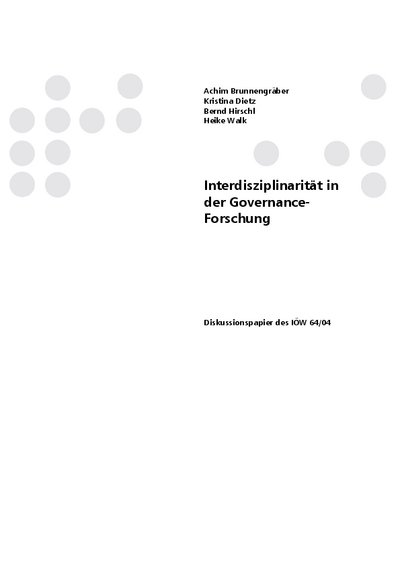Global Governance and Climate Change Analysis of the Conditions, Risks and Chances of Social-Ecological Transformations
This research project aims to explore the particular features of global-local governance that are nowadays so distinctive in the field of climate change. These features include the complex relationships between global, national, regional and local scales of governing and deciding, the many partnerships of responsibility that have to coexist between public, private and civic actors, all at these many scales, and the need for an adaptive and learning democracy. To deal with these tasks, the members of the project group represent different disciplines and enjoy varying practical expertise as well as wide-ranging theoretical knowledge. Consequently, the team can draw on the intellectual resources of a wide network of universities, institutions and experts.The project consists of five lines of research. These have been selected so that the new governance procedures can be analysed in an integrated manner at different spatial levels. Part I on multilevel-politics is the fundamental theoretical core of the project. This examines the interdependencies between local, regional, national and international processes. Part II investigates trans-national policy networks, which exist in parallel or in combination with state regulation and whose actions can structure politics at other levels of action. Part III is connected to the national level of action and investigates the transformation of German climate change policies, especially regarding the field of renewable energy sources. Part IV analyses the regional dimensions of climate change. This focuses on questions of the vulnerability of particular regions (in South East Asia) and their inhabitants which are especially exposed to climatic risks like floods, sea level rise or storms. Part V is concerned with the local level and examines the potential and the limitations of participatory approaches for climate protection and the acceptance of participatory tools by citizens.The IÖW-part focuses especially on the national level and renewable energies.
IÖW Project Team
- Barbara Thierfelder
- Karin Vogelpohl




